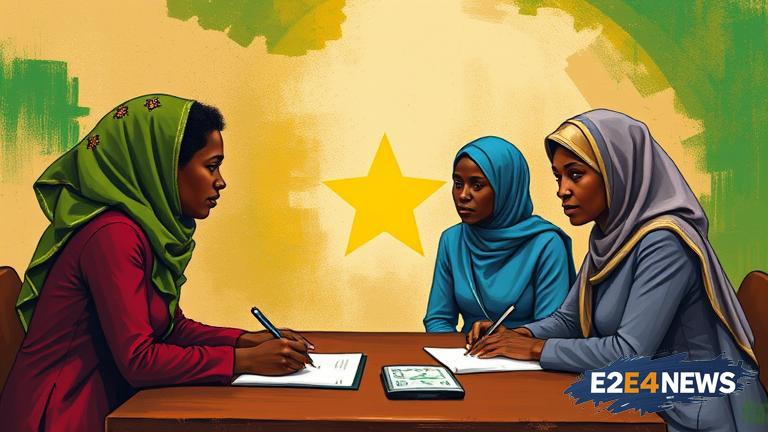The Central African Republic has taken a significant step towards promoting women’s rights and gender equality by ratifying the Maputo Protocol. This move makes the country the 46th African Union member state to commit to the protocol, which aims to protect the rights of women and girls in Africa. The Maputo Protocol is a comprehensive legal framework that addresses various aspects of women’s rights, including the right to equality, dignity, and freedom from violence. By ratifying the protocol, the Central African Republic has demonstrated its commitment to upholding these rights and promoting gender equality. The ratification is a major milestone for the country, which has faced numerous challenges in promoting women’s rights and addressing gender-based violence. The Central African Republic has a long history of conflict and instability, which has disproportionately affected women and girls. The ratification of the Maputo Protocol is a significant step towards addressing these challenges and promoting a more equitable society. The protocol requires states to take measures to prevent and respond to violence against women, including domestic violence, sexual violence, and other forms of gender-based violence. It also requires states to promote women’s participation in decision-making processes and to ensure equal access to education, healthcare, and economic opportunities. The Central African Republic’s ratification of the Maputo Protocol is a major victory for women’s rights activists and organizations, who have been advocating for the country to commit to the protocol for many years. The ratification is also a significant step towards promoting regional and international cooperation on women’s rights and gender equality. The African Union has been instrumental in promoting the Maputo Protocol and encouraging member states to ratify it. The protocol has been in force since 2005, and its ratification by the Central African Republic brings the total number of ratifying states to 46. The ratification is a major achievement for the African Union and its member states, which have been working together to promote women’s rights and gender equality. The Central African Republic’s ratification of the Maputo Protocol is a significant step towards promoting peace, stability, and development in the region. It is also a major milestone in the country’s efforts to promote human rights and the rule of law. The ratification is expected to have a positive impact on the lives of women and girls in the Central African Republic, who will now have greater access to education, healthcare, and economic opportunities. The protocol will also help to prevent and respond to violence against women, which is a major challenge in the country. The Central African Republic’s ratification of the Maputo Protocol is a major victory for human rights and a significant step towards promoting a more equitable and just society. The country’s commitment to the protocol demonstrates its dedication to promoting women’s rights and gender equality, and its willingness to work with regional and international partners to achieve these goals. The ratification is a major achievement for the African Union and its member states, which have been working together to promote women’s rights and gender equality. The Central African Republic’s ratification of the Maputo Protocol is a significant step towards promoting peace, stability, and development in the region, and is expected to have a positive impact on the lives of women and girls in the country.
